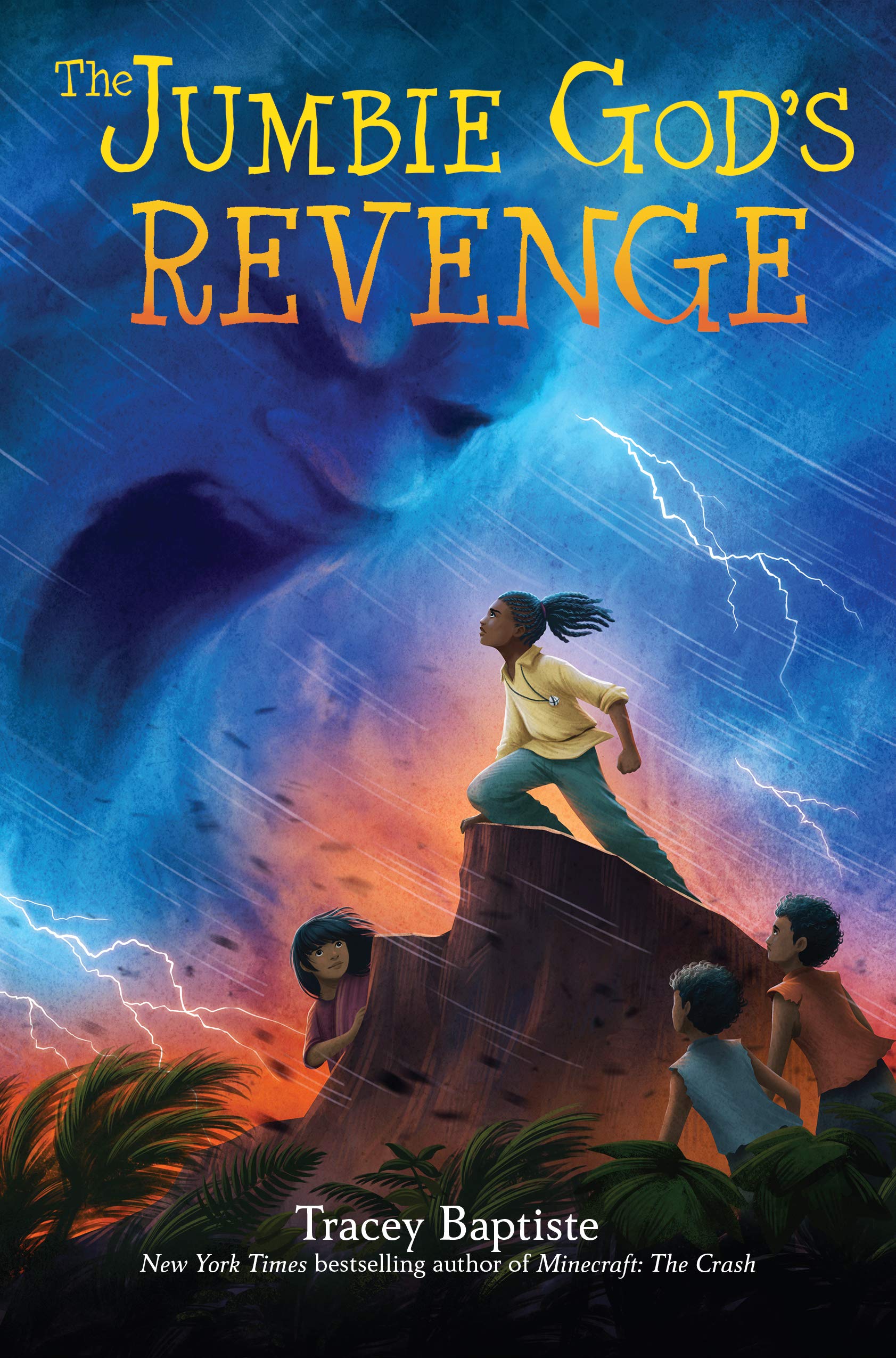The Jumbie God's Revenge, by Tracey Baptiste
From The Jumbie God’s Revenge:
“I have to go, anyway, Papa,” Corinne said. “This time, the god is not going to stop until everything and everyone on this island is broken.”
“If you go, I might lose you.”
Corinne held her papa’s face in her hands. “If I don’t go, we will lose everything.”
Cue me crying all over myself—I did not expect to finish this series with a big old sob, but here we are. (Note: It was WARM FUZZY HOPEFUL NICE CRYING, not DEPTHS OF DESPAIR DEVASTATED CRYING.)
When the first off-season hurricane hits, Corinne assumes that it’s the work of Mama D’Leau. When the second—and even more powerful—storm hits, she learns that she was wrong. It’s not a jumbie attacking the island and everyone she loves—it’s a god.
Huracan is angry, and Corinne—with the help of her friends, family, and yes, some of the jumbies she’s met over the course of the last two books—is the only one with the knowledge, allies, and power to end the storms.
The descriptions of the physical destruction that the hurricanes do—and the speed with which they happen—are terrifying, and the aftermath, in which the islanders help each other begin to pick up the pieces and rebuild, are both hopeful and gutting. Hopeful, because seeing folks join hands to move forward is heartening; gutting, because the challenges are so great, so tenacious, and so real.
But what made me cry was the way in which she brings three groups of characters together—the characters we already know, the islanders from the mountain, and the jumbies—and shows them persevering through the impossible, and, in the process, building trust and respect and community.
OH LOOK NOW I’M CRYING AGAIN.
As in the previous books, Baptiste tells an action-packed adventure story that resonates emotionally and intellectually. She weaves in threads about family and friendship and forgiveness, responsibility and love and loss and bravery; she touches on scapegoating and the plight of refugees and the importance of standing up for others, whether it be physically or verbally. And, as in the previous books, she does all that with warmth and humor and nuance.



